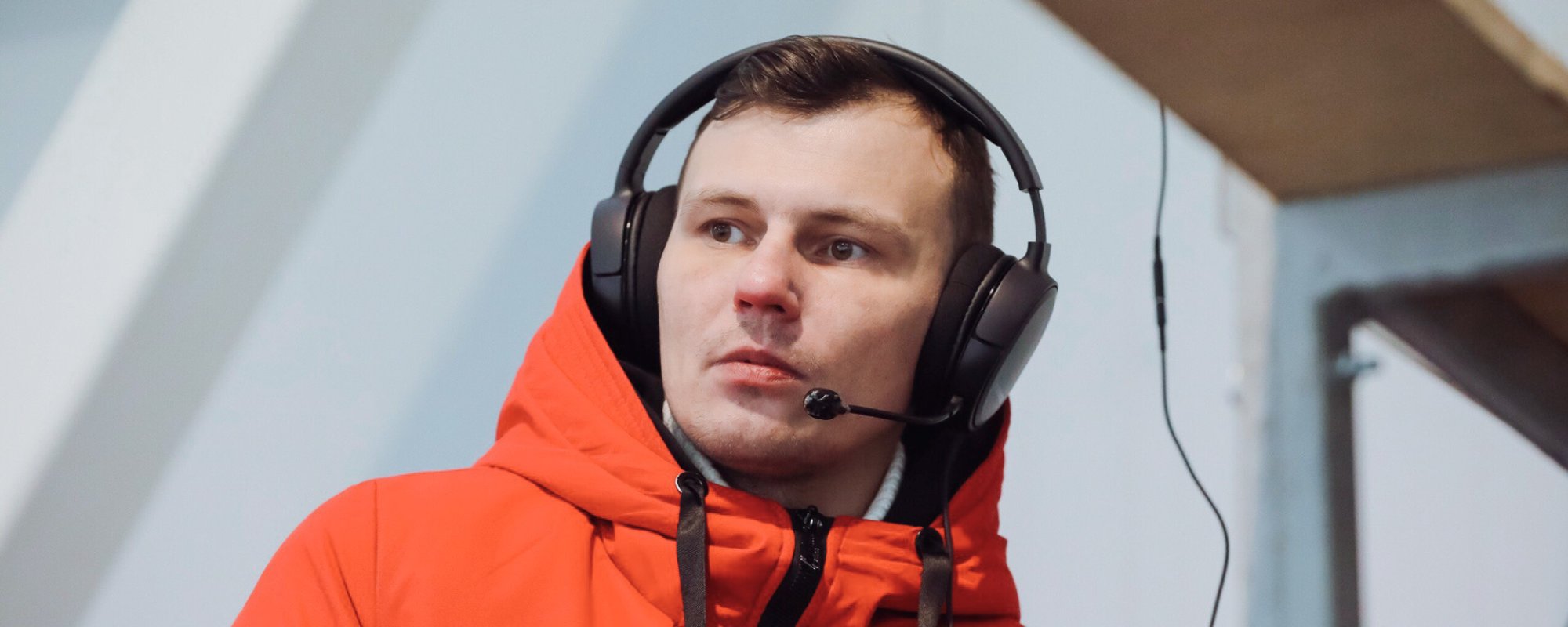Mikhail Zharikov, a former employee of the ‘Torpedo’ hockey club, was sentenced to six years in a penal colony for his social media posts. He was charged for ‘spreading fake news about the Russian army’, ‘justifying terrorism’, and ‘rehabilitating Nazism’. In court, Zharikov was testified against by a former friend, his former boss, and a citizen from his region. We asked them to share their opinions about the sentence.
Alexander Mol’kov lives in Balakhna, a small town near Nizhny Novgorod. Mol’kov is a wheelchair Paralympic athlete. He didn’t recall how he found Zharikov’s anti-war video in his Instagram feed, which he was able to access through his VPN.
‘I barely use Instagram. It’s just not really for me’, — Mol’kov told our correspondent.
After watching Zharikov’s video, Mol’kov — according to the indictment bill for the case — ‘gave way to indignation’.
‘I’m a former serviceman (in the Russian army) myself. I still have lots of friends on the front lines. Many of them have been wounded, and some even died. Meanwhile, this guy just sits at home and insults them’, — says Mol’kov.
Later that day, he called the public safety line, and asked them to check if this video ‘condemned the special military operation’ in accordance with ‘the statement on readiness to participate in diversionary acts’. ‘About an hour later I was visited by investigators. I told them everything I knew and gave them a link to the video’, — continues Mol’kov.
The police followed up and asked if he’d seen any of Zharikov’s other social media accounts. Mol’kov found Zharikov’s social media account but soon forgot all about it. ‘From that moment, I just lost interest’, — explains Mol’kov. 5 months later, Mol’kov learned that Zharikov had been sentenced to six years in a penal colony.
The shell-shocked pacifist
Mikhail Zharikov recently turned 39. Born to a family of factory workers, he spent his life in Nizhny Novgorod. He was already playing professional hockey in his childhood. He dreamed of becoming a TV host and began studying journalism when he was 25.
Before starting university, Zharikov served in the Russian Army. He suffered a concussion in 2005. ‘We were sent to clear out mines before a training exercise. Our squad leader, for some reason, stuck one of the shells against the other, resulting in an explosion. After a stint in the hospital, I was granted a vacation. Shortly before I returned home, army officials told my family that I’d died. My father had a heart attack and died a week after’, — Zharikov tells OVD-Info. Since the accident, Zharikov has periodically suffered from migraines, pain in his left ear, and impaired hearing.
Zharikov’s mother has passed away as well; his elder sister didn’t reply to our interview request. According to Zharikov, he and his sister had been out of contact. They made peace only in 2023 after he was detained.
In 2008, Mikhail began courting his childhood girlfriend. They were married and had a daughter by 2012. Around the same time, Zharikov reignited his passion for hockey — this time as a photographer. He would report mainly on local matches but sometimes travelled for away games. Zharikov’s job was a point of contention between him and his wife, and in 2015 they divorced. Zharikov says that ever since he made a point of seeing his daughter at least once a week, and supporting her financially, it forced him to take multiple part-time jobs.
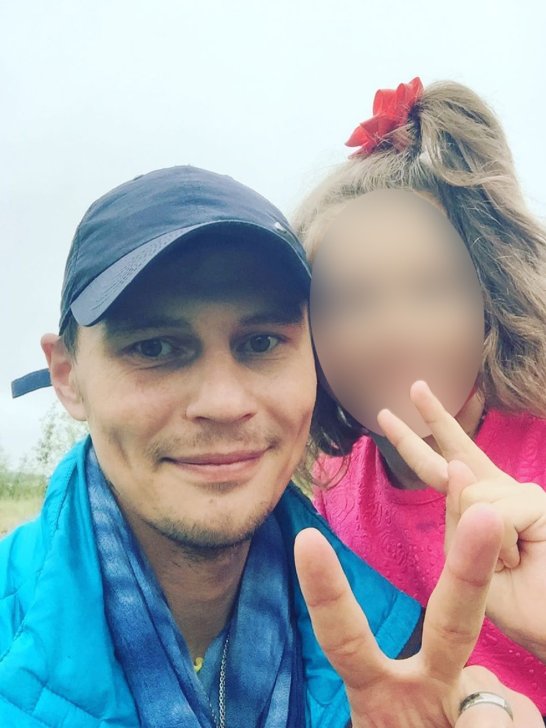
His main job was still associated with hockey: Zharikov worked for the press service of the Nizhny Novgorod hockey club ‘Torpedo’. He also served as a referee and secretary for hockey matches. In the latter role, he criticised the deputy governor of the Nizhny Novgorod region, Sergey Morozov, a few years ago when, despite COVID restrictions, he attended a youth hockey match.
In an eight-page letter dated November 1, 2023 (obtained by OVD-Info), written in the Nizhny Novgorod pre-trial detention centre on the pages of a school notebook, Mikhail Zharikov explains that while being involved in youth sports he never ‘aspired to politics’, as there was ‘neither fame nor money, and idealistic individuals worked practically for free’.
His dream was for Russia to become a ‘worthy competitor to Canada in hockey’. Zharikov’s love for Canada is only surpassed by his love for the Czech Republic. On the back of his phone, Zharikov has a picture of the Czech coat of arms, and his VKontakte profile states his location as Prague. Mikhail told OVD-Info that he has been to the Czech Republic ‘many times’ and ‘fell in love with it immediately’: ‘Nature, love of freedom, people, architecture, and the approach to life all appealed to me’, Zharikov said about the Czech Republic.
Zharikov is a pacifist and aligns himself with the ‘Western value system, where the individual is the most important’.
As he became more immersed in Nizhny Novgorod’s sports culture, he became aware of systemic problems from corruption to censorship. Since 2014, Mikhail has begun losing faith in the state to provide for its people.
Then came the full-scale invasion. Zharikov was crushed.
Three criminal charges
On Friday, June 2, after drinking four litres of beer, Mikhail Zharikov took out his old phone, logged into his small Instagram account, and began a live stream. ‘Right now, no one really cares about anything’, said the Nizhny Novgorod resident.
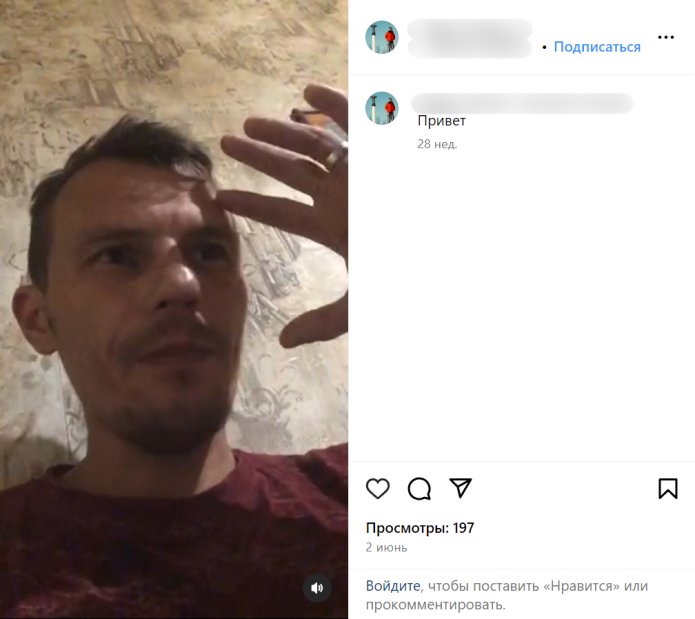
During an emotional 23-minute monologue, he declared that ‘Russia has repeated the path of Nazi Germany’, and pledged that «as long as I’m still in Nizhny Novgorod and they tell me — ‘Misha, you have to [join the war]’, I will go and fuck them up»; referred to those Russians going to fight as ‘deplorables’ who ‘shoot, rape, loot’; shared his plan to ‘get the hell out of here soon’, wishing ‘all this cabal to fuck off’; recalled the Great Patriotic War, stating that ‘Russians never knew how to fight, they knew how to throw bodies at the enemy’; recounted his ‘favourite story about the liberation of Prague’; complained about a woman he had been dating for the past three years — concluding that ‘Russian women are a separate caste’; praised the organisers of the assassination attempt on pro-war writer Zakhar Prilepin; noted that ‘now, a Russian is synonymous with a piece of shit worldwide’. In the end, Zharikov concluded, saying, ‘It’s better to die a free person than live as a slave, and the rest you can decide for yourselves’.
After the broadcast, Zharikov saved his video. After contemplating whether to delete it, he decided to leave it on his page. It currently has 197 views.
The next day, Zharikov was detained by the police. They were interested in one of his other posts spreading news about a Navalny rally the next day. According to Zharikov’s lawyer, they probably found his post using the #FreeNavalny hashtag. The police forced Zharikov to record a video apology, where he withdrew his invitation to the rally and claimed he’d stay at home.
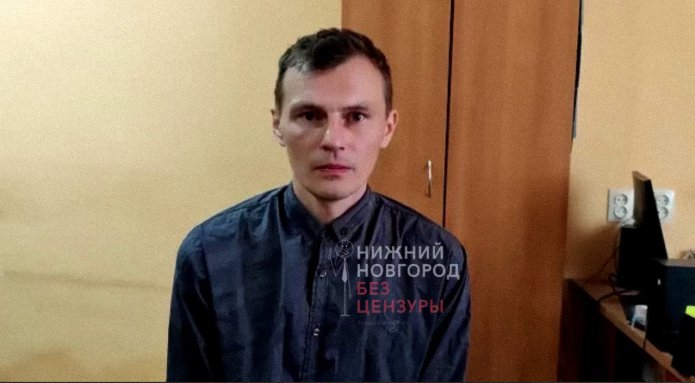
Zharikov claims he was forced to make the video under pressure: ‘Several officers stand there and make you do what they want’. Zharikov doesn’t regret his decision to make the recording; his first priority was to protect his daughter.
Zharikov was later released. The same day, however, the first of three denunciations was made against him. The second one — Mol’kov’s — came the next day. Both referred to Zharikov’s live video from before.
According to the prosecution, Zharikov’s video (and several other posts) violated the Russian Criminal Code for ‘justification of terrorism’.
Justification of terrorism (art. 205.2 part 2 of the Criminal Code)
Talking about blowing up the car which Zakhar Prilepin was in, Mikhail claimed: «I guarantee you, gentlemen, that in two or three months the situation will take a radical turn, and diversionary operations will start happening here, just as it happened to Prilepin. Huh? Yeah! Blew him up nicely, what? 'Excellent, Grigory, marvellous, Konstantin’ [a well-known quote from a monologue by a famous comedian Mikhail Zhvanetsky]. Yeah. And who will empathise with this [slur]? Are you serious? He has been inciting ethnic conflict for ten years» (the quote is given according to the transcript from the indictment bill — OVD-Info).
During the interrogation, Zharikov couldn’t recall what he said during the video, but was ‘extremely ashamed’. He told the investigators that he was just repeating an opinion from an opposition YouTube channel.
The investigator claimed that, in the video, Zharikov was planning to ‘blow up Prilepin’ and cited his accomplices ‘Grigory and Konstantin’.
According to Zharikov, the names are a Zhvanetsky quote, which he referenced in the video. He claimed that he didn’t know who participated in the bomb attack on Prilepin.
The rehabilitation of nazism (article 354.1 part 2 paragraph ‘c’ of the Criminal Code)
In 2021, Zharikov reposted a video about the Red Army’s Liberation of Prague from Nazi Germany which compared the Soviet regime to the Nazi regime.
According to Zharikov, he reposted the video during the pandemic and ‘really lacked communication’. During the interrogation, Zharikov stated he reposted the video for attention but forgot to delete the post later on.
Two years later, in May 2023, Zharikov posted about the liberation of Prague again. He also quoted Aleksandr Solzhenitsyn’s The Gulag Archipelago to allege that Prague wasn’t liberated by the Red Army, but by Czech partisans ‘and soldiers of the Russian Liberation Army [while the army was a German auxiliary force, some RLA units briefly fought against the Nazis by the end of the war]’.
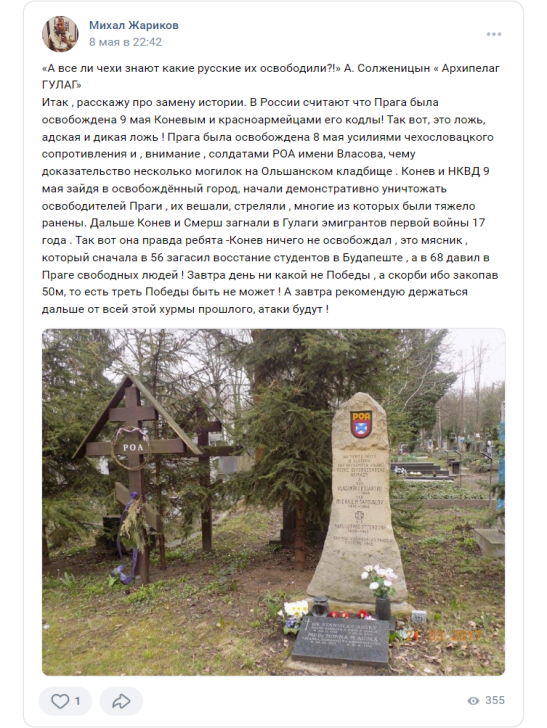
The screen capture of Mikhail Zharikov’s post on VKontakte: «‘Do all Czechs know which Russians liberated them?! ’ A. Solzhenitsyn ‘The Gulag Archipelago’
So, I’ll tell you about replacing history. In Russia, they believe that Prague was liberated on May 9 by Konev and his Red Army soldiers! So, this is a lie, a hellish and wild lie! Prague was liberated on May 8 through the efforts of the Czechoslovak resistance and, pay attention, soldiers of the Vlasov RLA, as evidenced by several graves in the Olshansky cemetery. On May 9, Konev and the NKVD entered the liberated city and began to demonstratively kill the liberators of Prague; they were hanged, and shot, many of whom were seriously wounded. Then Konev and Smersh drove the emigrants of the First War of 1917 into the Gulag. So it’s true guys — Konev didn’t liberate anything, he’s a butcher who first extinguished the student uprising in Budapest in 56, and crushed free people in Prague in 68! Tomorrow is not a day of Victory, but of sorrow, because having buried 50 million, that is, a third of Victory cannot be! And tomorrow [during V-day parades] I recommend staying away from all this bullcrap of the past, there will be attacks!»
Thus Zharikov, according to the investigation, tried to form an ‘unreasonably positive impression on treason by Vlasov’ and insulted ‘soldiers and officers who participated in the victorious liberatory operation’, and also ‘those honouring Red Army soldiers’. At the moment of publication, this post got 1 like and 344 views — most of those after social media wrote about Zharikov’s case.
Spreading false information about the military caused by hatred (article 207.3 part 2 paragraph ‘e’ of the Criminal Code)
According to the investigation, Zharikov disseminated ‘deliberately false information’ during his livestream. This includes his claims that the Russian occupational authorities in Ukraine are killing citizens with firearms, forcing sexual intercourse, and looting.
The investigators found three more posts of an ‘anti-Russian agenda’. One of Zharikov’s posts was about Boris Nemtsov, a former member of the Russian opposition who was assassinated in 2015. ‘The man who confronted the regime, who wasn’t afraid to speak’, wrote Zharikov about Nemtsov. However, the investigators didn’t follow up regarding the posts.
On 6 July, a criminal case against Zharikov was announced. He was detained a week later.
According to the court, Zharikov pleaded guilty while being interrogated. According to Zharikov, he made the posts ‘out of stupidity, nothing more’. Zharikov allegedly claimed to have lost his interest in politics, choosing to work and spend time with his family.
Sergei’s interrogations were accompanied by a psychiatric examination. According to Sergei Ustinkin — the head of the research laboratory at the State Linguistic University of Nizhny Novgorod — Zharikov is completely neurotypical. ‘The author, in his opinions, adheres to a radical liberal ideology and feels ideological hatred, directed at supporters of our military operation in Ukraine’, commented Ustinkin.

‘The video’s author [referring to Zharikov] also calls for ethnic extremism, directing his hate toward Russians. He ‘throws mud’ on this ethnicity, denies belonging to it, and justifies the killing of other Russians’, concluded Ustinkin.
Fyodor Dorofeev, an associate professor in the Department of Contemporary and Modern History at Lobachevsky State University, read Zharikov’s article on Prague at the request of the investigation. According to Dorofeev, Zharikov cited the incorrect date of the liberation of Prague in his video.
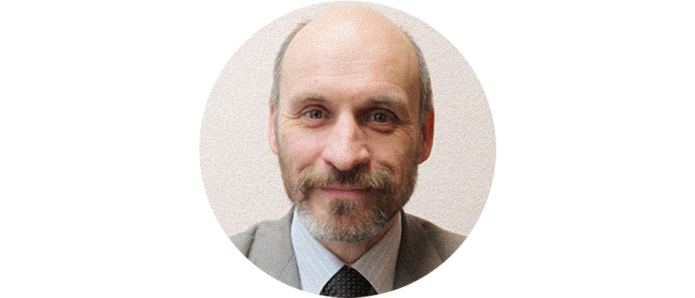
According to Dorofeev, Prague was liberated by the Red Army, not by partisans. He also claims that ‘the residents of Prague were very happy upon the arrival of Soviet Troops’. He drew this information from personal conversations with Russian WWII veterans.
Prosecution witnesses
Mikhail Zharikov was tried via video conference. ‘At court in Nizhny Novgorod, they broadcasted the session in Moscow’, says Aleksey Matasov, Zharikov’s lawyer.
The trial lasted a week. During the trial, one of three witnesses testified against Zharikov. Zharikov knew the man who testified against him personally. ‘I think he’s a coward who’s scared of the police and wants to please them in any way. My opinion of him has gotten worse’. commented Zharikov, who was shocked by the testimony.
Witness number one
In his testimony, Nikolai Panchenko recalled how he met Zharikov around ten years ago as a reporter for the SKIF hockey club. He and Zharikov connected on VKontakte and Instagram. ‘On social media, Zharikov was always complaining about something. I got the impression of a habitually resentful person’, commented Panchenko, unhappy with Zharikov’s posts. Panchenko was particularly offended by one of Zharikov’s posts criticising Marshal Ivan Konev, the Red Army general credited by the Russian Government for the Liberation of Prague. In their private correspondence, the acquaintances didn’t discuss political matters.
Everything changed when Russia’s full-scale invasion of Ukraine began. ‘I was simply shocked by Zharikov’s posts about our soldiers in Ukraine. He wrote about ‘Russian fascism’, but all the Nazis are in Ukraine’, commented Panchenko.
Panchenko, shocked by the posts, commented and asked where Zharikov got his information. In a direct message, Zharikov replied and told him where he got it. A quick argument followed, ending with Zharikov criticising Panchenko’s argument for being propagandistic. According to Panchenko, Zharikov threatened him.
In June, Panchenko learned about Zharikov’s sentence. ‘Understood’, he said, ‘I was just promised my name wouldn’t be leaked’.
According to the indictment bill, Panchenko didn’t submit a formal denunciation against Zharikov.
Witness number two
‘I think the verdict is too harsh. They could have gone with something milder’, says Dmitry Dronov, another witness, who recently learned that Zharikov has been sentenced to six years.
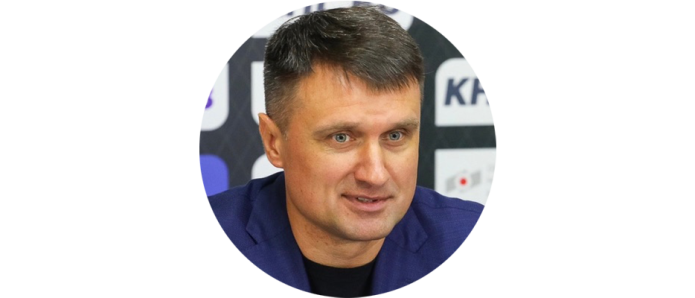
Dronov is the president of the Nizhny Novgorod Hockey Federation. He was Zharkov’s supervisor, having met him in 2019. They weren’t well-acquainted but followed each other on social media. Like Panchenko, Dronov was offended by Zharikov’s post about the Liberation of Prague. ‘He tried to diminish the merits of our fathers and great grandfathers’, said Dronov.
Dronov also saw Zharikov’s live broadcast on Instagram. According to Dronov, he was shocked by Zharikov’s efforts to spread ‘false information about the special military operation’.
In an appeal to the Russian Centre for Combating Extremism, Dronov wrote that ‘M.A. Zharikov has announced on Instagram that he’s prepared to bomb Russian officials at Ukraine’s call’.
Dronov denies having reported Zharikov. He claims that the police came to him to clarify evidence and that he didn’t go to them. ‘They just wanted to confirm Zharikov was no longer working for my organisation’, Dronov said.
According to Dronov, he was unable to testify because he was opening a hockey section in Luhansk (a Ukrainian city taken by Russian armed forces in the conflict). He continued: ‘I would never in my life endorse Zharikov’s statement. Throwing such threats is unacceptable. Perhaps he should be pitied for receiving such a harsh sentence, but I wouldn’t change a thing’.
Witness No. 3
‘I think Zharikov got what he deserves. He’ll have some time to reflect and think about what he said. Everyone has the right to their own opinion, but not everyone has to agree with it’, comments the third witness, Alexander Mol’kov.
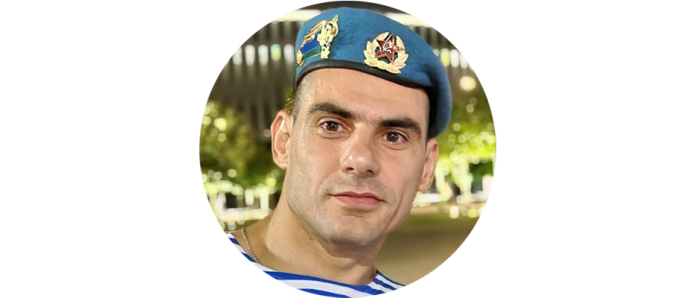
Mol’kov, 36, is a well-known athlete in his city. Ten years ago, he became paralyzed following a motorcycle incident. He remained persistent and took up swimming. At the Paralympic Games in Tokyo, he finished fourth in the 100-metre breaststroke.
Later on in the conversation, Mol’kov changed his mind about Zharikov’s sentence. ‘First, I’d have a corrective conversation with him. Then, I’d send him straight to the front. He could be just like a member of the Wagner Group (a Russian paramilitary organisation that previously recruited soldiers from Russian prisons)’, commented Mol’kov.
Mol’kov called Zharikov ‘a dangerous arsonist of the public opinion’.
‘As a resident of Nizhny Novgorod, I can’t afford to forget what Zharikov said. He said he has lots of friends here who support him, right? Let’s suppose he’s being serious about his intentions. Imagine you have a child at school who was killed in an attack by these radicals. What would you think? Is six years too much or too little? ’ Mol’kov went on.
‘In such situations, we can’t afford to be soft’, — Mol’kov concludes.
Zharikov reacted calmly to his sentence. ‘I knew I would be imprisoned, the only question was — for how long’, he said. According to his lawyer, Zharikov was ‘extremely pleased about the sentence announcement since it provided some certainty’.
However, later, after being moved to detention, Zharikov exclaimed: ‘I got 6 years for 3 posts! How do you like it? What is this? ’
He partially agreed with the charges brought against him, but rejected his charges of political, ideological, and national hatred: ‘I don’t hate the authorities or my fellow citizens’, he said in a statement.
In an appeal against the sentence, Zharikov’s lawyer requested that his charges be changed and for a sentence other than imprisonment to be considered.
According to Zharikov, every day in the Nizhny Novgorod detention centre is the same. He has good relations with the other prisoners and occasionally receives letters. However, his friends no longer write to him. ‘They all turned away from me’, said Zharikov. Friends don’t write to him: ‘They turned away from me after my demarche’.
Galya Sova



